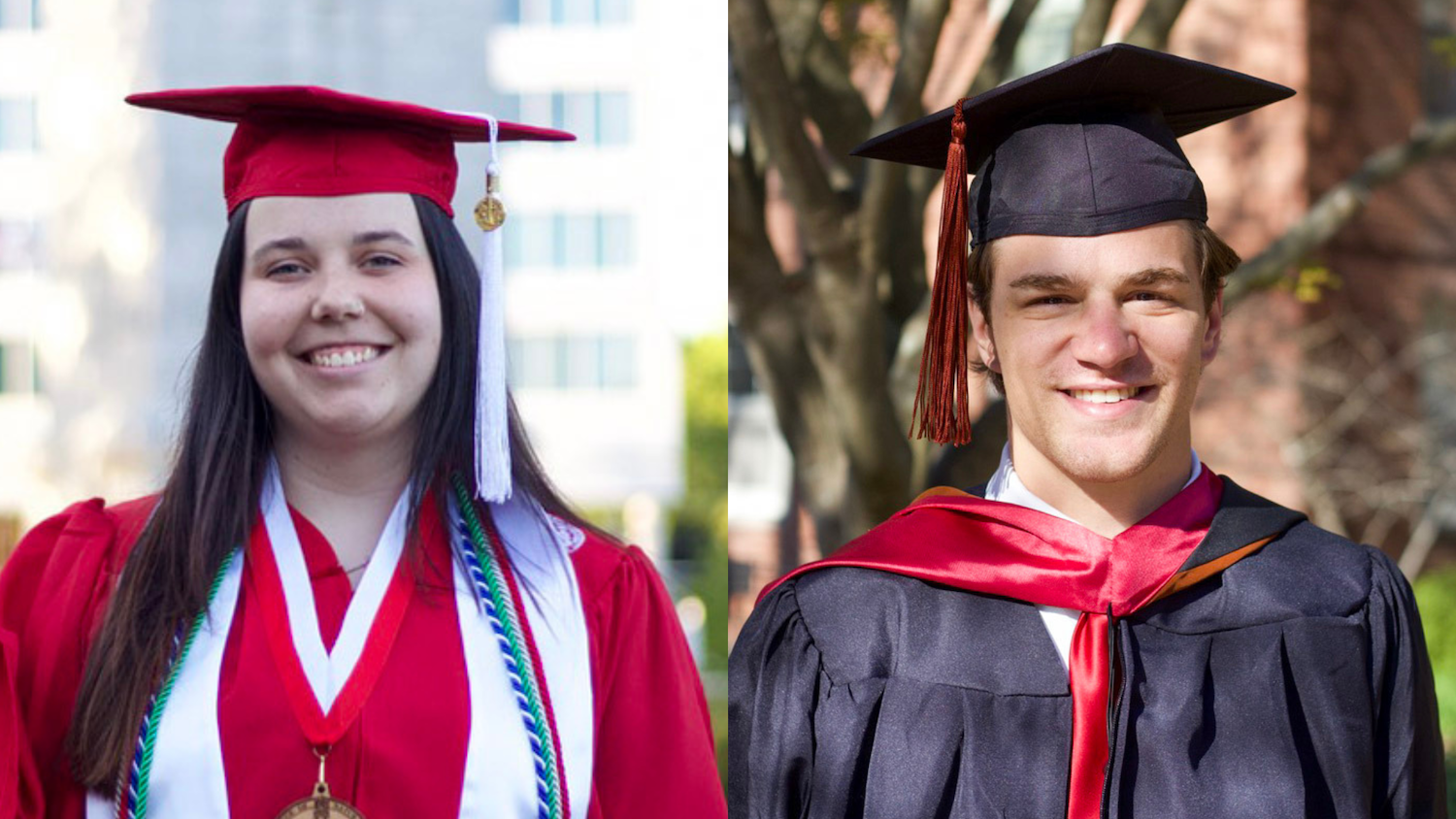Student Spotlight: Mary Paz Alvarez Valverde
Sustainable Materials and Technology major Mary Paz Alvarez Valverde is well aware of the benefits of professional development, especially as a student. Recently she traveled to Boston, Massachusetts to network with industry professionals at the International GreenBuilding Conference and Expo. When she isn’t traveling, Alvarez Valverde is networking with other driven students as the Scouting Vice President in Alpha Phi Omega, a national service fraternity, a CNR Ambassador and an active participant in the Sustainable Sisterhood.
Tell us about your hands-on experience.
I went to Boston, Massachusetts for the International GreenBuilding Conference and Expo. During my stay there, I was able to meet professionals that are working to meet the same goals that I am, such as a zero-waste university campus, increasing awareness about sustainable city solutions, and how biking can truly change the way a city functions and lives. I was also able to see just how much traction this movement has gained. The expo hall was enormous and it was encouraging to see that so many people are working to reach these common goals.
How did this experience impact you?
This conference made me realize that the work that an individual is doing is never happening without support from a global community. The global support and encouragement to reach these sustainability goals were essentially materialized during the conference. I gained an incredible amount of information from those that are working in the same field that I am that I plan on applying while I still can here at NC State.
What did you learn about yourself during your experience?
I learned that I can only see myself working in sustainability. The entire time I was there, the only thing I could think about was how excited I am to be a part of this community. I am completely set on working as hard as I can to leave some sort of sustainable impact where I work and go to school.
What did you enjoy most about your experience?
I really enjoyed being able to see different sides of sustainability, since normally sustainability is considered to be about being “green,” which is true but it is so much more than just choosing sustainable products. Topics that were covered included things like insulation and how it effects the heating/cooling of a home, how to design a smart city using future technology such as drones, turning historic areas into tourist spots and revitalization of cities as a whole. It was amazing getting to see so many people passionate about their focus on sustainability.
What did you find most challenging about your experience?
The most challenging part about my experience was having to have some of my opinions challenged. One of the main things that left me questioning my field was the topic of what is truly compostable and what zero-waste actually means. When I talked to professionals in the waste reduction field, some argued that zero-waste was not possible since the materials that we would consider “compostable” are actually barely a step above plastic. The PLA cups that are considered to be compostable have no real standard set in place to make sure that they are truly compostable, so in reality, the PLA cups end up increasing the airing time needed to create compost and also leave plastic particles in the fertilizer. It was difficult to talk about this topic since this is something that has been considered an achievement on the surface, but there are containers that are compostable.
Any advice to incoming students thinking about your major, field of study or research focus?
My advice to anyone interested in sustainable materials, or sustainability as a whole, is to genuinely absorb the information discussed in classes. When I attended the building materials booths or lectures, I felt that I had a better grasp on these topics since they were mentioned in the sustainable materials introduction course. Essentially, everything that had been talked about in my major classes was being applied. Companies and professionals enjoyed knowing that younger students knew the more technical side of the industry.
Have you completed any other internships, undergraduate research, study abroad or other hands-on experiences?
I am currently an intern in the office of Waste Reduction and Recycling for NC State and I am one of the zero-waste interns with a focus on composting. This internship allowed me to see behind-the-scenes of waste reduction and waste in general on campus. There is a reason NC State has gotten to where it has in terms of waste reduction and it is due to an amazing group of people that work at NC State in waste reduction. It’s a group of people that do work behind the scenes and are never truly appreciated, so I am incredibly thankful to be working with such hardworking people.
- Categories:


